|
|
|
Editor's note
|
|
As they struggle to contain the spread of coronavirus, it is obvious that many African governments lack the capacity to provide effective palliatives for collapsed urban income and disruptions in food supply. But they may still be able to run smaller programmes which, Astrid Haas and Rachel Strohm explain, may help urban dwellers safely migrate back to more food-secure rural areas.
Science communicators know that it takes more than one medium to get the message across. It can be even tougher when you’re trying to discuss complex issues with children. That’s why, Marina Joubert writes more and more comics and cartoons are emerging to explain the COVID-19 pandemic clearly and simply.
|
|
|
Top Stories
|
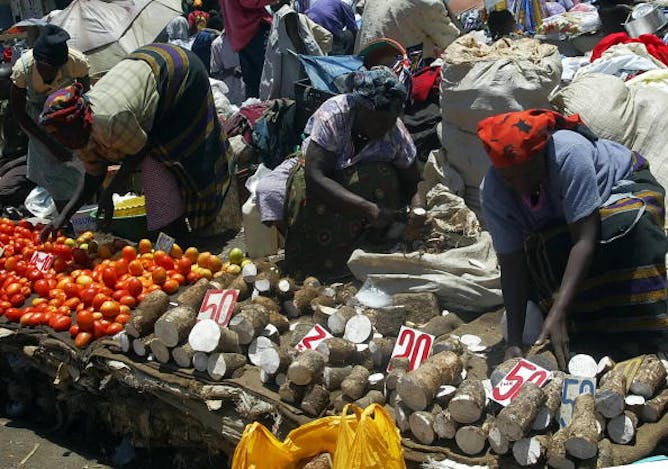
Markets in Africa’s cities are central to the food chain. But many had to close because of COVID-19 measures.
Simon Maina/AFP via Getty Images
Astrid R.N. Haas, International Growth Centre; Rachel Strohm
Safe rural migration programmes are not a substitute for formal social protection. But they could buy governments some time.
|
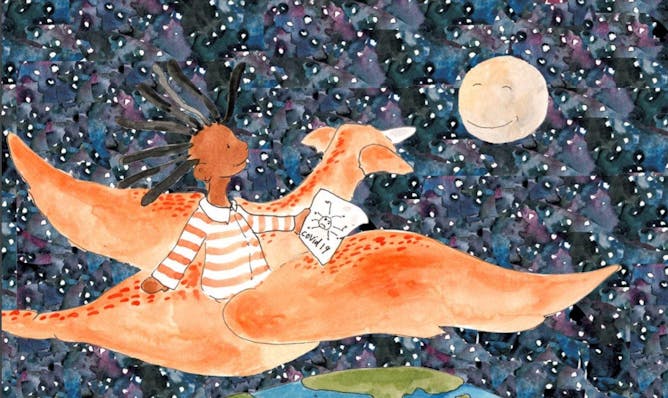
An image from My Hero is You, produced by the UN and several humanitarian agencies.
IASC/Helen Patuck
Marina Joubert, Stellenbosch University
Scientists provide the credibility and accuracy, while the artists ensure this is communicated with creative flair and appealing designs.
|
COVID-19
|

Peter Ellis, University of Kent; Mark Wass, University of Kent; Martin Michaelis, University of Kent
Sexually active men should consider wearing condoms during the pandemic.
| |

Kylie Quinn, RMIT University; Joanna Kirman, University of Otago; Katie Louise Flanagan, University of Tasmania; Magdalena Plebanski, RMIT University
A vaccine historically used to prevent tuberculosis is now among the contenders for a COVID-19 vaccine. So what is the BCG vaccine and why might it work against coronavirus?
|
|
|
Arts & Culture
|

Patrick White, Université du Québec à Montréal (UQAM)
Journalism is not keeping pace with the evolution of new technologies. Newsrooms need to take advantage of what AI can offer and come up with a new business model.
| |
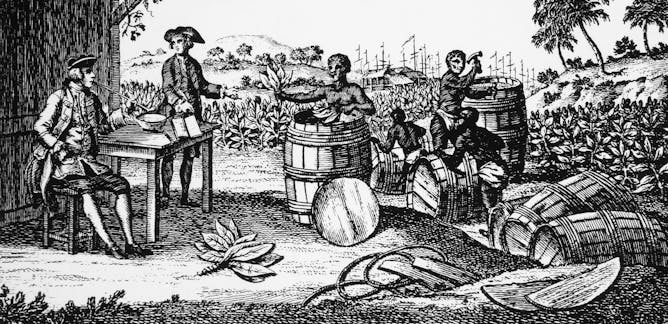
Peter C. Mancall, University of Southern California – Dornsife College of Letters, Arts and Sciences
During two 17th-century medical calamities, economic imperatives outweighed moral concerns.
|
|
|
Politics + Society
|
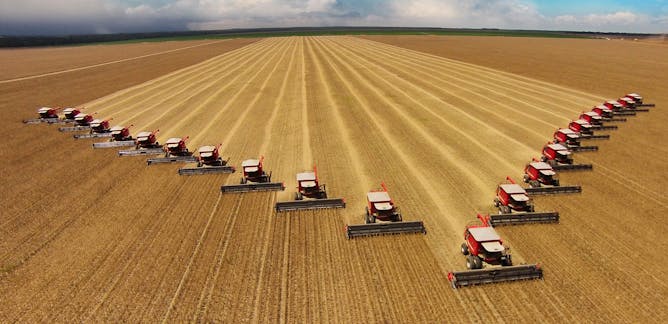
Rhonda Ferguson, York University, Canada
For the second time this century, crises have led to calls to transform our global food system. We can start with restructuring the global food trade so that it complements local food systems.
| |
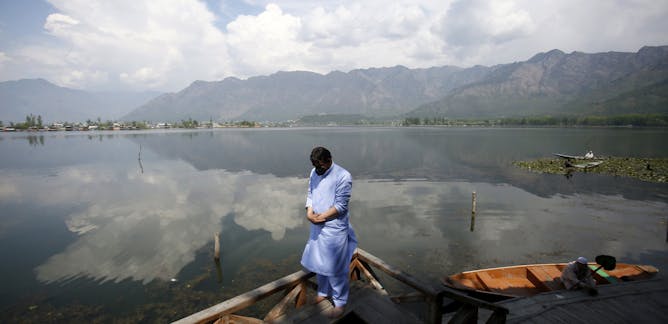
Omer Aijazi, University of Toronto
Although the United Nations has called for a global ceasefire during the pandemic, Kashmiris are bracing for a new wave of violence as India accelerates its settler-colonial ambitions.
|
|
|
En español
|
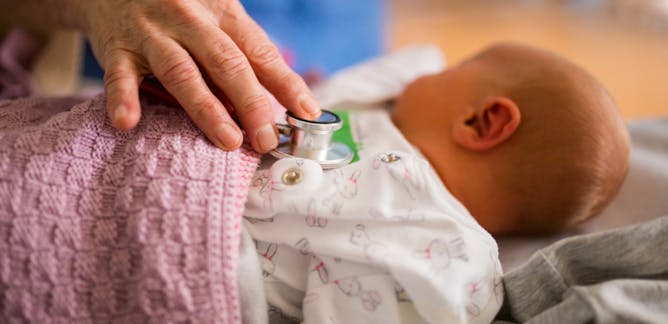
Sergio Flores Villar, Hospital Universitario Mútua de Terrassa
Un comunicado para pediatras de la Asociación Española de Pediatría (AEPED) ha alertado sobre el aumento de casos del denominado “shock pediátrico”. Se trata de una insuficiencia cardíaca debida a una miocarditis.
| |
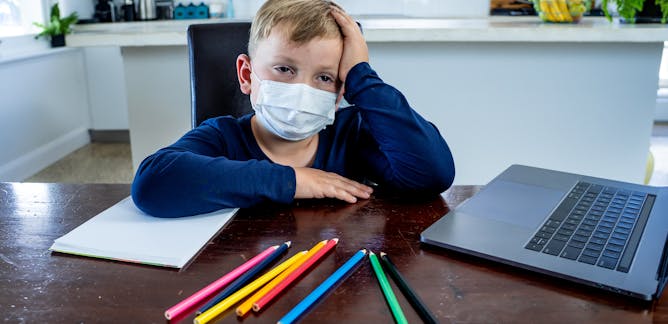
Mar Venegas, Universidad de Granada; José Beltrán Llavador, Universitat de València
La nueva fórmula de enseñanza que nos ha traído la pandemia parece controvertida. Un equipo de investigación ha entrevistado a alumnado, profesorado y familias. Los resultados indican que, pese a los esfuerzos, la virtualización tiene aún muchas lagunas.
|
|
|
En Français
|
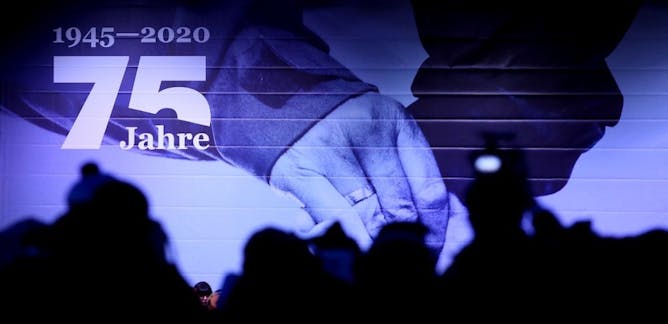
Benjamin Rojtman-Guiraud, Université de Lorraine
En Allemagne, où l’extrême droite progresse, la question de la commémoration du 8 mai 1945 et, plus largement, de la perception de la Seconde Guerre mondiale, n’est pas tranchée au niveau national.
| |
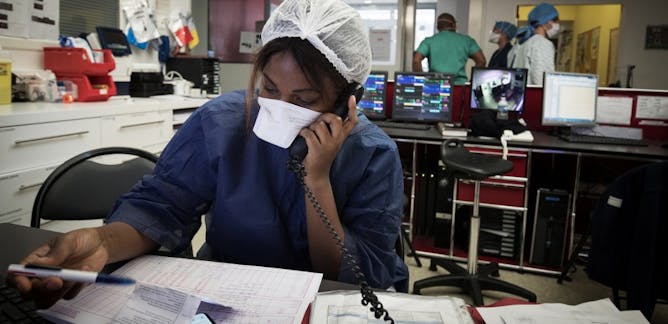
Serge Besanger, INSEEC U.
En France, 20 % des personnels administratifs des hôpitaux sont en fait des personnels soignants détachés à plein temps à des travaux administratifs.
|
|
|
| |
| |
| |
| |
| |
| |
|
|
|
|
|
|
|